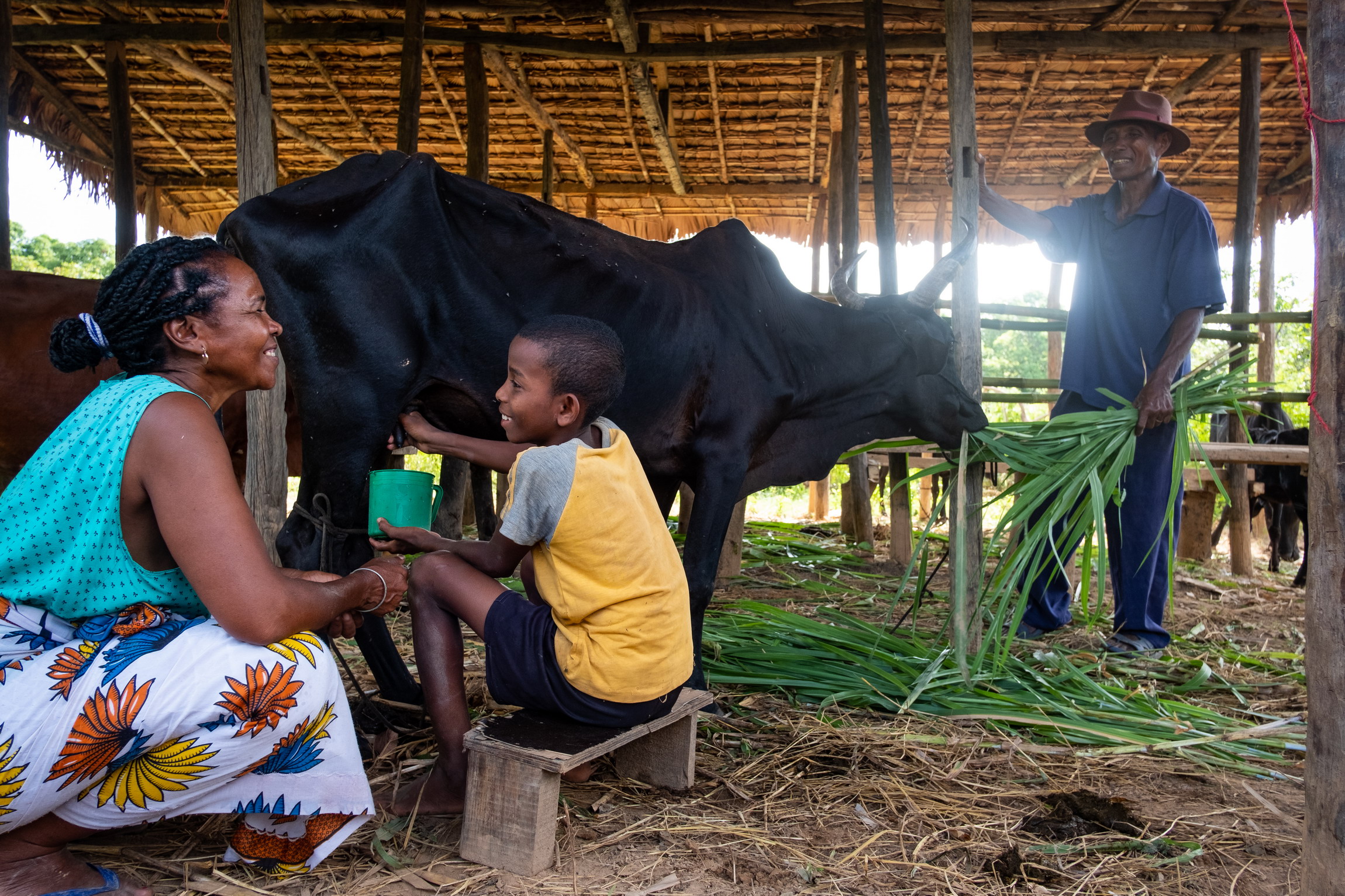In Africa, during the lean season between harvests, food becomes scarce and people must deal with chronic hunger and extreme poverty. The effects, including low birth weight, cognitive impairment, and malnutrition and stunting can lead to greater lifelong risk for infectious diseases and, in some cases, death.
Since 2005, over 80,000 smallholder rice farmers supported by the Aga Khan Foundation (AKF) in Madagascar have increased their yields by up to three-fold, helping to end the hungry season for their families. In additional to providing technical support and training, AKF works to enhance rice production by promoting market integration of rice producers and facilitating household access to basic financial services. The programme supports community-based savings groups that allow poor farming households to quickly access savings or credit, be it to pay for school fees or planting labour or to defer selling harvests to a time when prices are higher. To date, AKF has trained more than 1,760 savings groups with more than 34,280 members (60 percent women).
While greater rice yields have helped rural communities become more food-sufficient, most farming households remain without income-generating activity for nearly half of the year, as the rice season extends only from November to April. Moreover, their diets, composed primarily of rice, do not provide adequate nutrition for proper growth and health. To address these challenges, since 2015, AKF has broadened its programme to include new initiatives.
Initially starting in the north-west region of Sofia, AKF’s activities have more recently expanded to the Diana, Sava, Itasy and Analamanga regions. For example, to the north of Sofia, in Diana, AKF is supporting cocoa farmers to improve the quality of their crops and help them access markets. Currently AKF supports 5,500 farmers in Diana and aims to scale this into the tens of thousands over the next five years. In addition to cocoa, other cash crops such as Artemisia (used in anti-malarial drugs) are being introduced to improve farmers’ incomes. Nutrition is also becoming a key focus with the introduction of sweet potatoes and “edible forests” (with banana trees, jackfruit and breadfruit), which not only add nutritious fruit and vegetables to the rice staple but also improve crop diversity and soil quality. Environmental improvement efforts are complemented by the introduction of conservation agriculture techniques aimed at protecting natural capital and mitigating against some of the effects of a changing climate such as hotter summers and wetter winters.
akf-madagascar-159611_r.jpg







